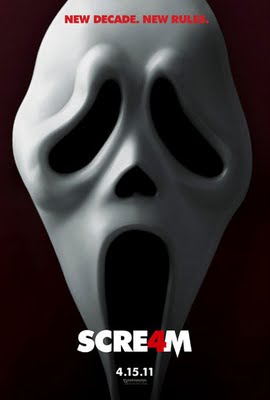NOTE: After reading over this letter (originally posted July 2, 2009), I’m struck by how many of these stereotypes were included in Bridesmaids. I’m not sure how I feel about that yet; I ultimately found Bridesmaids to be a fairly subversive film. (Stay tuned for my Review in Conversation with Amber–she may completely disagree with me on that.) But yeah, Bridesmaids failed the shit out of this list of no-nos. Hmmmmm …
According to
several entertainment sources, a new comedy called
Business Trip has been picked up by Universal Pictures. Written by Stacey Harman, the film focuses on four women who take a business trip together and, instead of getting any real business-oriented work done, shenanigans ensue. Apparently, it’s being produced by the same people involved with
The Hangover, so I speculate that
Business Trip will contain similar comedic elements, but from a female perspective.
How do I feel about this? It’s hard to say. I’ve longed to see a film that focuses on what women actually do when they’re screwing off together. I’m pretty sure they get high sometimes. They might even sleep until noon and not have jobs and live in their parents’ basement at the age of 34 (although probably not in a film about women in corporate
America). I guess I’ll at least experience
some satisfaction if the filmmakers manage to stick to a few basic rules.
Dear Business Trip filmmakers,
As you work toward developing this film, and if you’re at all interested in breaking some new ground by portraying real women on-screen (rather than the conventional stereotypes of women we’ve gotten so used to seeing) please be advised of the following:
1. Do not cast Jessica Alba, Megan Fox, Katherine Heigl, and Anna Faris, and then parade them around in giant heels, wearing some semblance of revealing business suit-esque attire, probably involving excessive cleavage and certainly showcasing thirty gratuitous inches of bare leg.
2. Do not institute a plot point that involves one of the lead actresses finally feeling complete because she finds a man who rescues her from her horrible life as a lonely, over-achieving corporate executive i.e. childless, feminist spinster.
3. Do not include a scene where one or two or all of these women make out, possibly in a hot tub, but definitely in front of a man, just for the sole purpose of performing some lightweight pornographic male fantasy.
4. Do not kill one of them off with a melodramatic deadly-illness twist.
5. Do not include a scene where one or two or all of these women get depressed about a man, and as a result, gorge themselves on any carbohydrate-infused junk food within reach, while simultaneously sobbing (for extra comedic effect).
6. Do not ever allow any character to utter the phrase “cat-fight” … ever.
7. Do not script any of the following: klutzy falling scenes, food fights, cake-decorating, aerobics classes, weepy arguments with Mom, random bursting into song, lip-synching and/or dancing around in pajamas to 60s music, a wedding, an ice-queen who can’t feel, an infantilized, codependent ditz, group slut-shaming, or group competition for a man.
8. Do not even go near “scheming-vindictive-bitch” territory; we get enough of that in the male-dominated comedies of the Apatowverse.
9. Do not try to balance out the characters’ personalities by making one a good, sweet, virginal Madonna and another a fucked-ten-men-in-one-night, “crazy party girl” who dances topless on bar tables with a cigarette in one hand and a tequila shot in the other.
10. Do not make one or more of the characters “baby-crazy” and/or desperate to be inseminated by a gay best friend.
11. Do not turn this into Sex and the City Takes a Business Trip, even though that’s undoubtedly what everyone will encourage you to do.
Love,
Bitch Flicks

